If you have Celiac disease, are gluten-intolerant, gluten-sensitive, or have been prescribed a gluten-free diet for a chronic condition, choosing truly gluten-free supplements, including vitamins, minerals, herbs, protein powders, and others is essential.
The problem is, many supplement brands contain ingredients, such as excipients, binders, and fillers, that may contain gluten or traces of gluten.
Some brands even claim their products are gluten-free without implementing the standards required for third-party Gluten-Free Certification.
If you’re following a gluten-free diet to lose weight or help with minor digestive complaints, this may not be a big deal.
However, if your health depends on avoiding gluten even traces of gluten can throw your health off track.
So, how do you find authentic gluten-free supplements you can trust?
It is possible, here we show you how.
What to Watch Out For: Sneaky Supplement Ingredients That May Contain Gluten
If you’re gluten-free, you’re probably pretty good at reading food labels and spotting sneaky gluten-containing ingredients.
This skill will serve you well when vetting gluten-free supplements too.
However, reading a supplement label is different from a food label, because they contain unique ingredients from various plant, mineral, synthetic, and animal sources.
For example, certain supplement ingredients, like beta glucans which come from oats, may be sourced from non-certified-gluten-free oats.
If you don’t know what beta glucans are made from, and if the label claims the ingredients are gluten-free without third-party verification, you have no way of knowing that a beta glucan supplement could contain hidden gluten.
Other examples of supplement ingredients that may contain gluten include:
- Wheat, including wheat grass, spelt, einkorn, and wheat germ
- Barley, including barley grass in greens powders and supplements
- Brewer’s yeast/Nutritional yeast
- Rye
- Malt
- Hydrolyzed wheat protein
- Hydrolyzed vegetable protein
- Fibers containing wheat dextrin
- MSG: MSG in supplements?! Unfortunately, this is a thing with some brands. MSG goes by many aliases in foods and supplements, including hydrolyzed yeast, natural flavor, yeast extract, carrageenan, glutamate, glutamic acid, and hydrolyzed ingredients, to name but a few.
- Texturized vegetable protein
- Natural and artificial flavors and colors: This is a big one because companies are not required to list out the ingredients contained in their proprietary flavor or coloring blends, natural or not.
- Grasses or greens powders with ingredients derived from wheat, barley, rye, and oat, such as wheat grass and barley grass
- Maltodextrin (a wheat or corn-based ingredient)
- Dextrin
- Maltose
- Starches including modified food starch, pregelatinized starch, hydroxypropylated starch, and hydrogenated starch hydrolysate: Starches are tricky because they may or may not be derived from gluten-containing sources
- Rice flour, starch, or powder: Although rice is generally considered gluten-free, it is subject to cross-contamination
- Beta glucans
This is not an exhaustive list of every supplement ingredient that could contain gluten or be cross-contaminated, but it does highlight the most common sources.
Keep in mind a supplement could check all the boxes for gluten-free ingredients but be manufactured in a facility that also makes gluten-containing products, leading to cross-contamination.
So, how can you tell if a supplement is truly gluten-free? You look for third-party certification.
Third-Party Certified Gluten-Free Are The Only Safe And Authentic Gluten-Free Vitamin Brands
Although there is now regulation surrounding the term “gluten-free” on food and supplement labels, many companies misuse the label out of ignorance, unexpected sourcing problems, cross-contamination, or (sadly) as a marketing tactic.
Contrary to what many health experts say, dietary supplements are regulated by the FDA and must comply with FDA guidelines for manufacturing and labeling.
Unfortunately, unethical supplement companies will mislabel products to sell as many as possible before getting caught.
Some companies do not intend to be unethical and believe their products are 100% gluten-free, so they forego in-house and third-party testing.
FDA regulations do not require testing food or supplement products in order to bear the gluten-free label.
They also allow the term “gluten-free” to appear on products manufactured in facilities that also manufacture wheat, so long as the product contains under 20 PPM of gluten (but that doesn’t matter much if they aren’t testing at all!).
Therefore, the only way to know for sure you’re getting a truly gluten-free supplement is to buy from companies who are third-party tested and certified by companies like NSF, the Gluten-Free Certification Organization (GFCO), or the Gluten-Free Food Program (GFFP).
This simplifies the gluten-free supplement vetting process while ensuring you’re getting a safe and authentically gluten-free product.
Country Life is proud to be the first supplement company to obtain NSF Gluten-Free certification for our manufacturing and distribution facilities.
Our facilities are also certified organic, and we employ rigorous testing to ensure a pure, contaminant-free and gluten-free product line.
This includes our sister company, Biochem, makers of Certified Gluten-Free whey and vegan protein powders.
Essential Supplements for a Gluten-Free Diet
Research has shown people with celiac disease, gluten-intolerance, autoimmune disease, inflammatory conditions, and those on gluten-free diets can benefit from various supplements.
Although a healthy, diverse, gluten-free diet should be the main source of nutrition, supplements help compensate for common deficiencies or insufficiencies due to digestive health issues, medications, and other complications of these conditions.
Commonly Recommended Supplements to Support People Living With Celiac, Gut Health Issues, or Gluten Intolerance include:
- Multivitamins
- Probiotics and prebiotics
- Digestive enzymes
- Essential fatty acids
- Vitamin D
- Fiber
- Iron
- Calcium
- Magnesium
- B-vitamins
- B12
- Amino acid supplements
- Zinc
Additional supplements may be recommended by your healthcare practitioner based on your unique needs and nutrient requirements.
Which Country Life Supplements Are Gluten-Free?
All Country Life’s supplements are manufactured and distributed in NSF-certified Gluten-Free facilities!
This means you can confidently choose from over 200 supplements, knowing they are third-party certified gluten-free and rigorously tested from raw material to finished product for contaminants and potency.
Some of our popular supplements for gluten-free diets include:
- Multivitamins for men, women, and vegans
- B-Vitamin supplements including methylated/coenzymated B-Complex
- B12 Gummies, lozenges, and tablets
- Easy Iron
- Amino Acids
- Hair, Skin, & Nail formulas
- Clean Fish Oil Supplements including omega-3s and EFA blends
- Calcium Magnesium
- Zinc
- Digestive enzymes and probiotics
- Vitamin D in various forms and potencies
- Biochem Whey Protein Powder
- Biochem Plant Protein Powder
All our products, from raw ingredients to finished supplements, are rigorously tested to ensure a clean product and accurate potency in our NSF-GMP-compliant, certified gluten-free, and certified organic manufacturing facilities.
We maintain our celebrated quality through extensive research, natural sourcing, and accurate labeling.
Click here to shop all Country Life’s gluten-free vitamins, minerals, and supplements.
Learn more about our company’s ethos and history here.
Sources mentioned in this article:
- “Gluten in Medicine, Vitamins & Supplements”. Celiac Disease Foundation.
- “20 Sneaky Names Nasty MSG Goes By”. Prevention.
- Questions and Answers on the Gluten-Free Food Labeling Final Rule. US Food and Drug Administration.
- “Nutritional Deficiencies in Celiac Disease: Current Perspectives”. Nutrients.
- “Multiple Nutritional Factors and the Risk of Hashimoto’s Thyroiditis”. Thyroid.
- “Nutritional Treatment in Crohn’s Disease”. Nutrients.


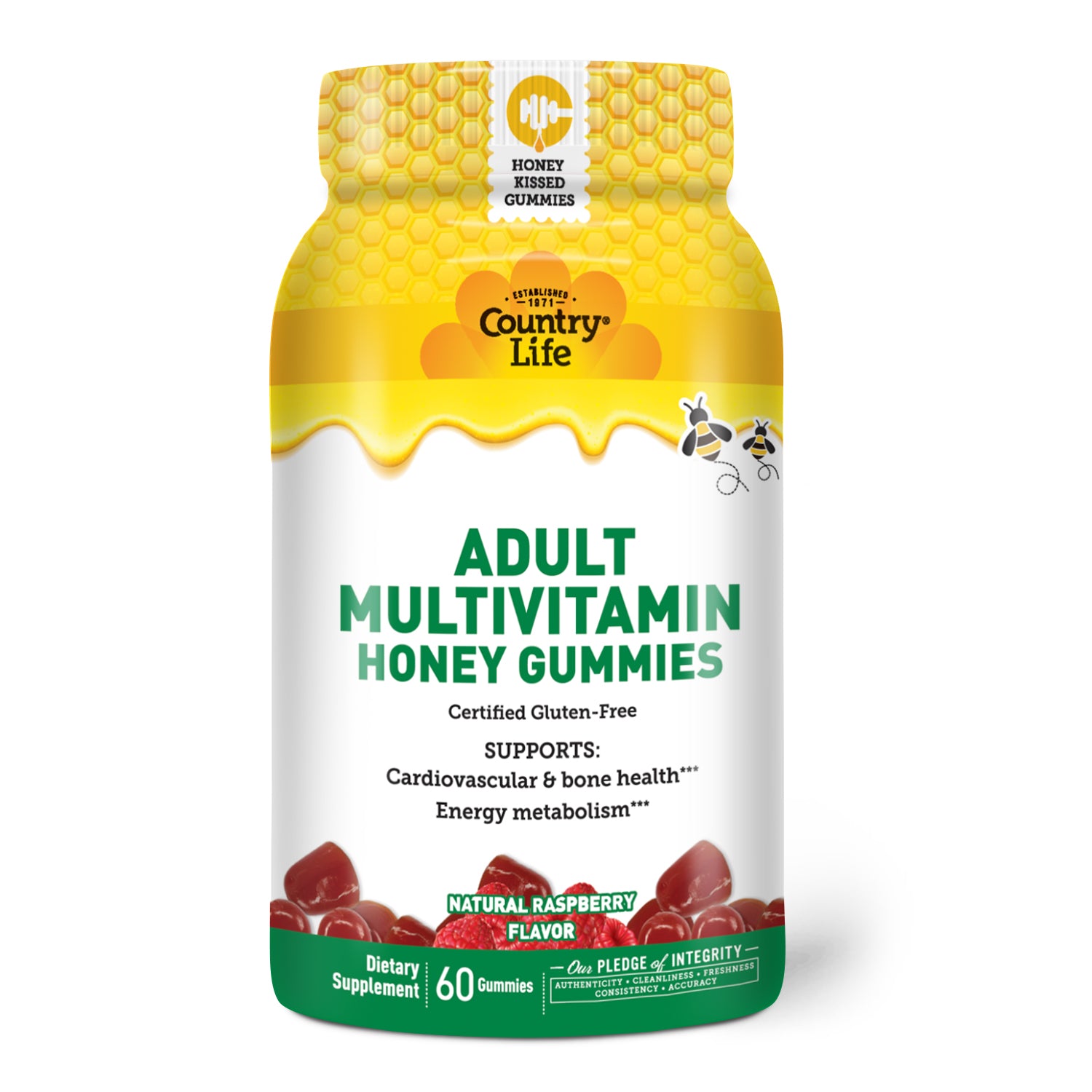
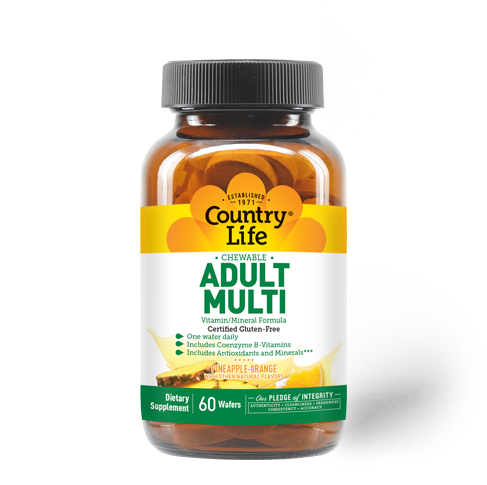
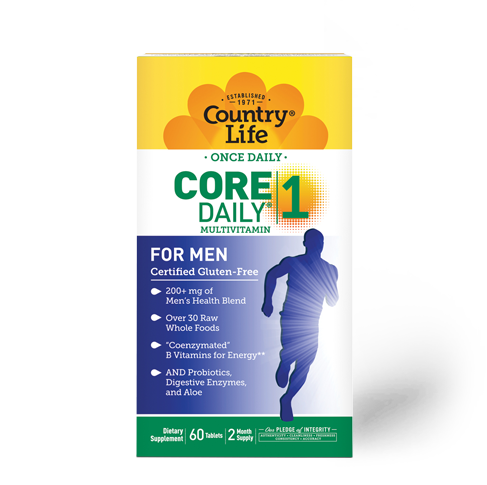
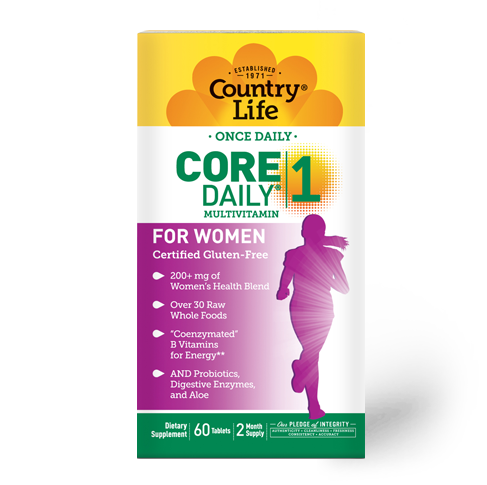
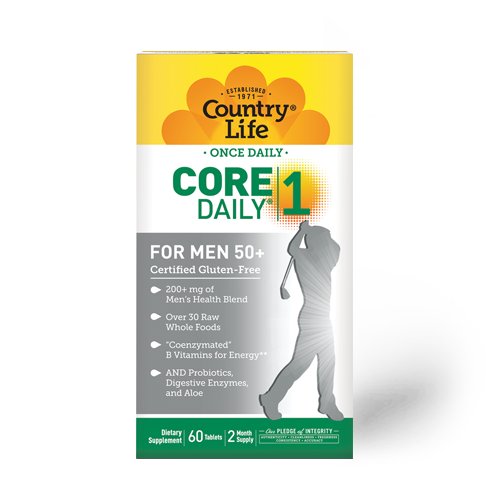
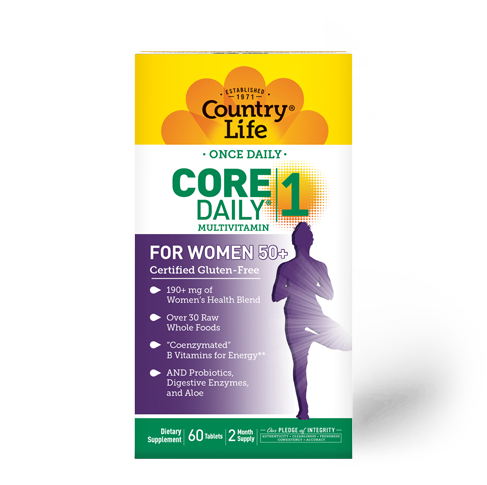
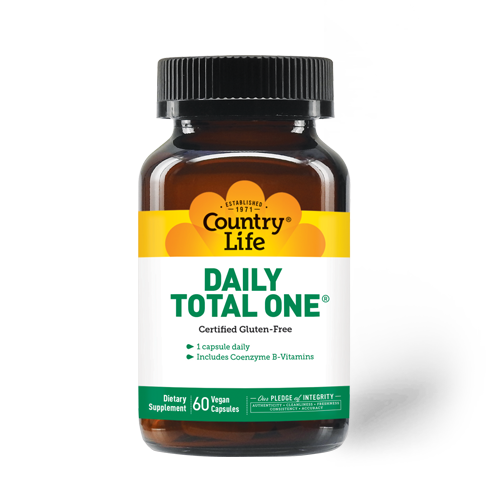
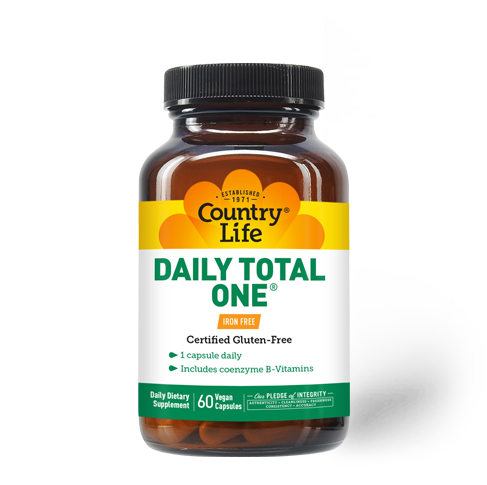
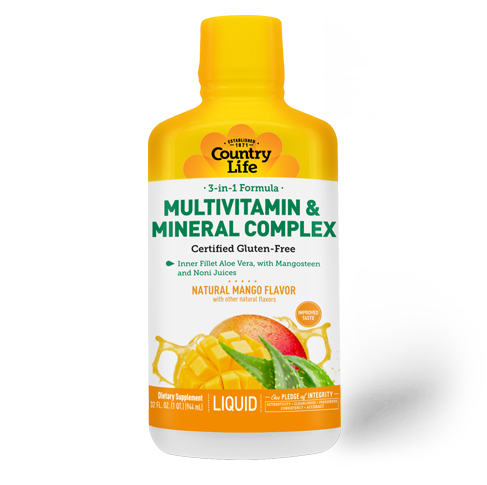
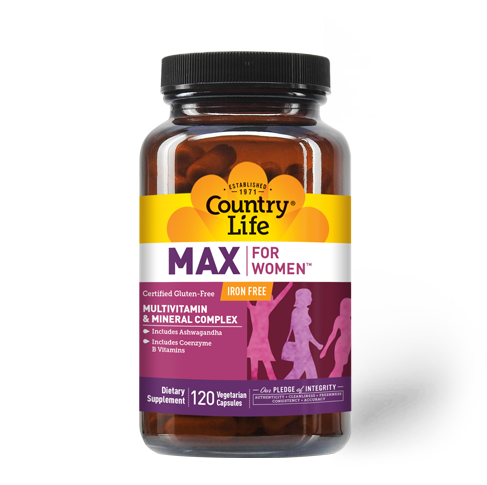
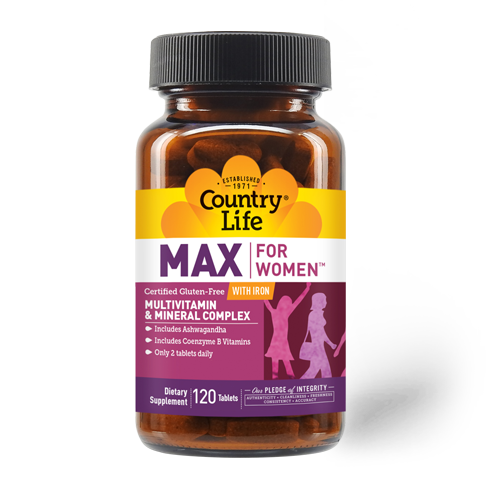
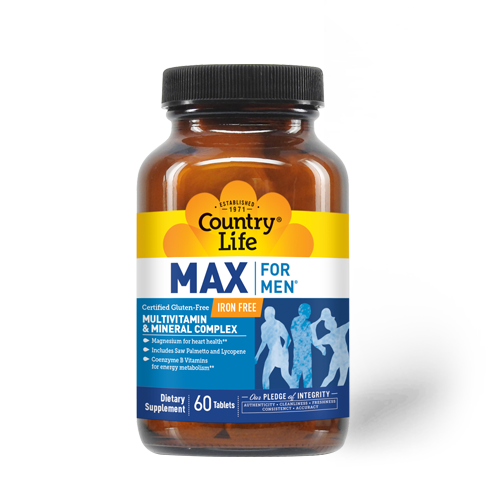
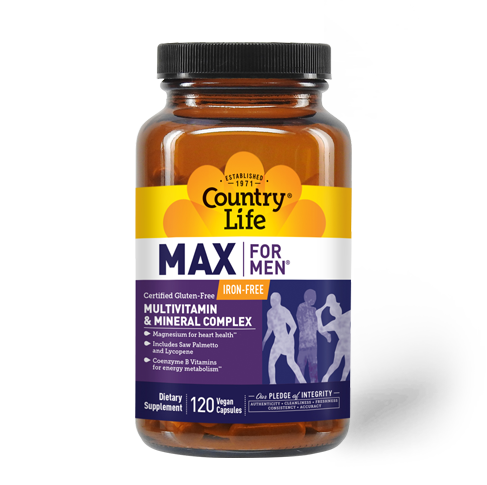
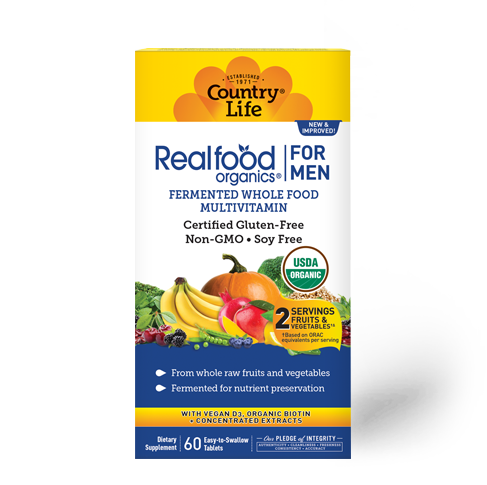
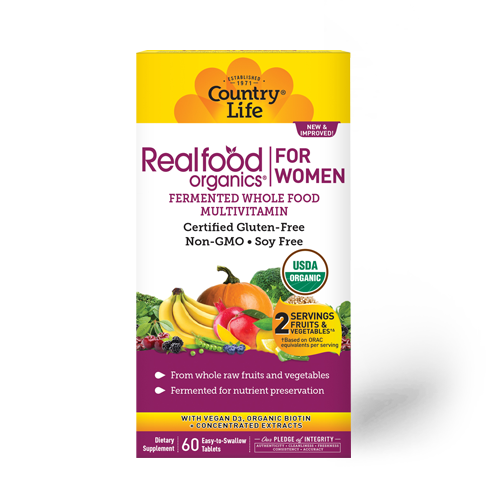
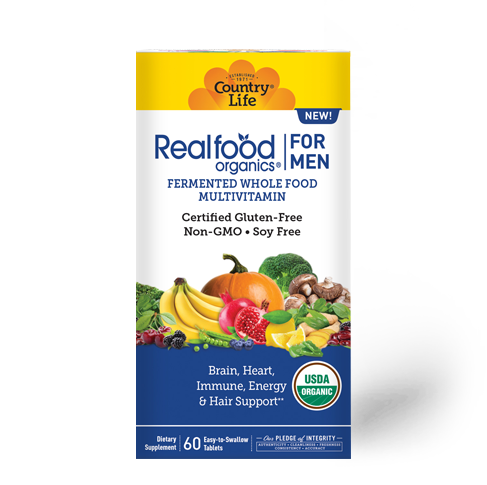










Share:
5 Herbs For Women’s Libido
How To Get Glowing Skin + The Best Vitamins For Skin